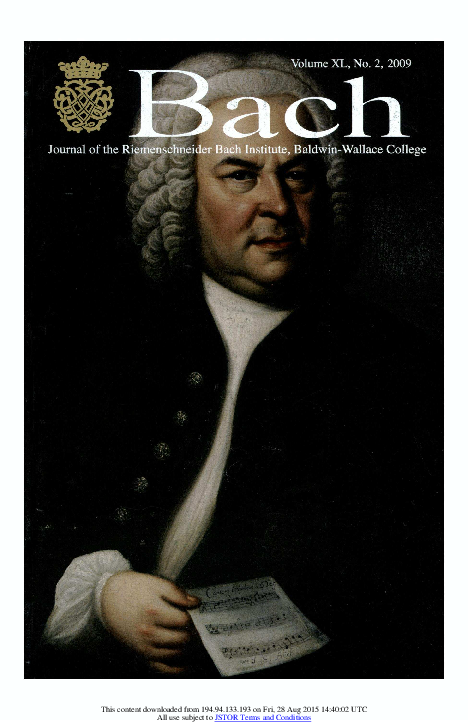
The Lutheran “Credo” in J. S. Bach’s Mass in B Minor
In this article I argue that the “Credo” from Bach’s Mass in B Minor is marked by music whose counterpoint puts a decisive Lutheran spin on the work’s broadly Christian verbal text, and I also argue, from new liturgical and manuscript evidence, that this “Credo” was most probably meant to be performed as a discrete “work” on certain special occasions in the liturgies of the Lutheran churches in eighteenth-century Leipzig. Historical Lutheran theology (from well-known sources known to have been in Bach’s personal library or in the library of the Thomaschule in Leipzig for directed use by the faculty, including by Bach) is drawn on throughout the discussion, not with a view to weighing its religious truth claims but rather with a view to making capital out of its potential explanatory power for interpreting and understanding how and why Bach’s music is put together the way that it is. From this context, Bach’s setting of the Latin texts of the Ordinary of the Mass appears, against some wide-spread modern claims, to be neither “universal” nor “Roman Catholic.” Bach’s Mass in B Minor evidently reflects and projects Lutheran patterns of thought with which attentive Catholics would have seriously and markedly disagreed, and the work evidently never reflects and projects Catholic patterns of thought, or anything at all, with which Bach’s fellow orthodox Lutherans would have disagreed. Paradoxically, perhaps the more our reception of Bach is historically informed and the more we moderns—Lutherans and non-Lutherans, alike—receive his work as “other” (not as “ecumenical,” or “universal,” and the like), the more powerfully and meaningfully his art can actually speak to us.
Obuna bo'lish uchun tizimga kiring
Nashrning boshqa sonlari